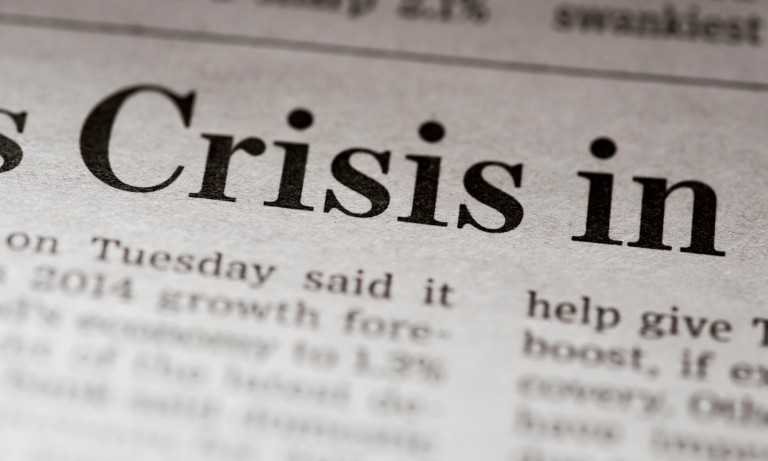Key Takeaways from Crisis Management in Uganda’s Media
In the realm of public relations (PR), crisis management is a crucial skill set that involves preparing for, responding to, and recovering from any event that could damage an organization’s reputation. In this article, we explore real world scenarios in which these principles are applied.

Imagine waking up one morning to find your company’s name splashed across headlines for all the wrong reasons. Whether it’s a product recall, a scandal involving a key executive, or a social media backlash that has gone viral, the situation is critical. This is the reality many public relations professionals face, often with little warning.
In the realm of public relations (PR), crisis management is a crucial skill set that involves preparing for, responding to, and recovering from any event that could damage an organization’s reputation.
This process is not merely about damage control; it’s about strategic communication and relationship management, navigating the emotional and human aspects of the story that unfolds in the public eye. It’s also about people – the employees who are unsure of their future, the customers who feel betrayed, and the public whose trust needs to be regained.
So, how does one go about this seemingly labyrinthine process, you might wonder..
That’s what we’ll explore in this article through an analysis of a few notable real-world examples from Uganda’s media landscape.
Nyege Nyege 2022
Often, one of the first and most crucial steps in handling a crisis is acknowledging its impact on the key stakeholders. It’s not just a business issue; it’s a deeply personal one for everyone involved.
Consider the crisis faced by the Nyege Nyege Festival in 2022, one of Uganda’s most celebrated cultural events. Just days before the festival, Uganda’s Parliament called for its cancellation, citing concerns about immorality and indecency. The accusations sparked widespread debate, with critics claiming that the festival promoted behaviors contrary to Ugandan values, while supporters emphasized its cultural and economic significance.
The festival’s organizers were thrust into a challenging situation, needing to address the concerns raised by lawmakers and religious groups while maintaining public support.
They quickly responded by acknowledging the impact of previous situations where the festivities got out of hand, engaging with the government and agreeing to implement stricter regulations to ensure the festival would be conducted in a manner that respected public order and safety.
The organizers communicated their commitment to these measures through social media and press releases, emphasizing the event’s focus on cultural exchange and artistic expression. By actively addressing the concerns and maintaining transparency, the Nyege Nyege Festival was able to proceed, demonstrating the power of proactive crisis management.
Diamond Trust Bank (DTB) V Ham Enterprises: 2020.
When a crisis hits, the instinct might be to go on the defensive or retreat into silence. However, the most effective responses often embrace honesty and transparency. People want to hear from other people, not faceless corporations.
For example, the crisis between Diamond Trust Bank (DTB) and Ham Enterprises in 2020. When Hamis Kiggundu, the owner of Ham Enterprises, accused DTB of illegally withdrawing UGX 120 billion from his accounts, it set off a legal battle that captured the nation’s attention. The accusation, which centered on claims of unauthorized withdrawals and improper loan practices, threatened to tarnish DTB’s reputation and shook public confidence in Uganda’s banking sector.
DTB responded honestly and transparently, arguing that the transactions were legitimate loan repayments. However, the initial ruling by the Commercial Court in favor of Ham Enterprises sent shockwaves through the banking industry, raising concerns about the enforceability of cross-border financial agreements. The bank quickly filed an appeal, and in 2021, the Court of Appeal overturned the initial ruling, restoring confidence in DTB and the wider banking sector.
Throughout this crisis, DTB carefully managed its communication with the public, customers, and stakeholders. The case highlighted the importance of legal clarity and effective communication in crisis management. By engaging with the legal process and maintaining transparency, DTB was able to navigate a potential disaster and ultimately emerge with its reputation intact.
Uganda Airlines: 2023
Empathy is a powerful tool in crisis management. It’s about putting yourself in others’ shoes and addressing their concerns genuinely. For PR professionals, this means crafting messages that resonate on a human level and being available to answer questions, however uncomfortable they might be.
Uganda Airlines learned this lesson in 2023 when they faced widespread frustration due to frequent flight delays and cancellations. Both local and foreign passengers voiced their anger on social media, demanding answers.
The airline responded by acknowledging the issues and apologizing to those affected. They attributed the delays to operational challenges and committed to improving their services. Uganda Airlines also offered compensation, such as meal vouchers and ticket refunds, to the affected passengers. By showing empathy, taking responsibility and actively working to rectify the situation, the airline gradually rebuilt its reputation.
In conclusion, effective crisis management is not just about mitigating damage; it’s about seizing the opportunity to rebuild and strengthen relationships with key stakeholders. Whether it’s through transparency, empathy, or proactive engagement, the examples of Nyege Nyege Festival, Diamond Trust Bank, and Uganda Airlines illustrate the power of thoughtful communication and strategic response.
In each case, the organizations faced significant challenges that could have irreparably damaged their reputations. However, by addressing the concerns of their audiences and maintaining a human touch in their communications, they not only weathered the storm but also emerged stronger. For PR professionals, these lessons underscore the importance of preparation, empathy, and the ability to adapt in the face of unexpected challenges.
As the media landscape continues to evolve, the principles of effective crisis management remain more crucial than ever, ensuring that organizations can navigate crises with resilience and integrity.
Got Questions?
Let us help you along your marketing journey. Send us your query, and we’ll get back to you as soon as possible
Copyright © 2024 TROI Media
